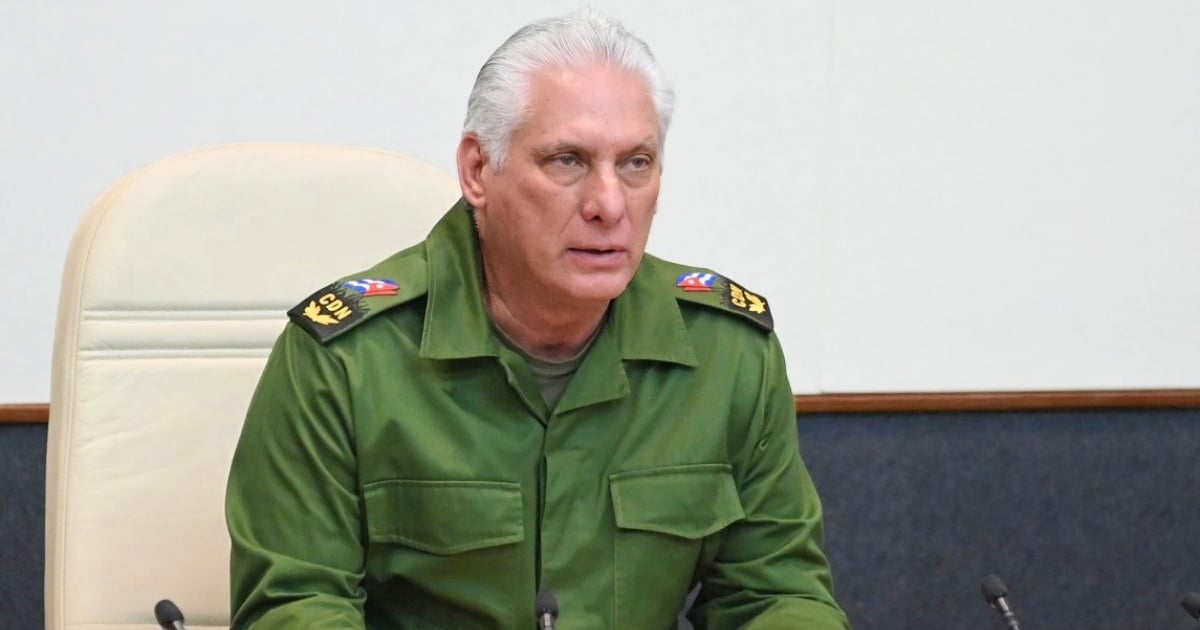“We’re jinxed,” was how Miguel Díaz-Canel summarized the series of unfortunate energy events to the National Assembly of People's Power in July 2022, which had taken over 400 MW of generation offline from three power plants in a short span. Little did Díaz-Canel know that this was just the beginning of more severe challenges, as between October and November 2024, he would face the record-low of two nationwide electrical blackouts within three weeks.
Since Díaz-Canel took office in Cuba on April 19, 2018, the nation has been plagued by a series of crises that have significantly impacted the Cuban people's lives. These incidents have highlighted his inability to manage crises and lack of effective leadership, aside from the burdensome legacy left by the Castros.
Significant Events Under Díaz-Canel's Presidency
Aviation Tragedy in Havana, May 18, 2018
Barely a month into Díaz-Canel’s presidency, a Boeing 737 from Cubana de Aviación, leased from the Mexican airline Global Air, crashed shortly after taking off from Havana's José Martí International Airport, en route to Holguín. The disaster claimed 112 of the 113 lives on board, marking one of the deadliest aviation accidents in Cuban history.
Tornado Strikes Havana, January 27, 2019
A tornado ravaged Havana, particularly affecting the municipalities of Diez de Octubre, Regla, Guanabacoa, and San Miguel del Padrón. With winds reaching up to 300 km/h, the twister destroyed homes, toppled trees, and severely damaged infrastructure and the power grid. At least seven people died, and more than 190 were injured.
Impact of the COVID-19 Pandemic from March 2020
While a global catastrophe, the pandemic severely affected Cuba, especially in 2021, when the healthcare system collapsed due to shortages of medicines, personnel, and resources. The coronavirus pandemic dealt a crippling blow to Cuba's public health system.
Further Disasters and Challenges
Hotel Saratoga Explosion, May 6, 2022
A devastating gas leak explosion, during preparations for the reopening of Havana's iconic Hotel Saratoga, led to significant destruction of the building, killing 47 people and causing numerous injuries and material losses. The once luxurious landmark became a tragic national scene.
Matanzas Super Tanker Base Fire, August 5-12, 2022
A lightning strike on a fuel tank at the Matanzas Super Tanker Base ignited one of Cuba's largest industrial disasters, resulting in 17 deaths and 146 injuries.
Hurricane Impacts
Since Díaz-Canel assumed office, Cuba has been struck by at least six hurricanes, causing varying degrees of devastation. Notably, Hurricane Oscar caused unprecedented destruction, with six fatalities, flooding, landslides, and severe material losses.
Ongoing Economic and Social Struggles
Earthquakes of November 10, 2024
Two earthquakes, measuring 6.0 and 6.7 on the Richter scale, surprised residents in the eastern provinces, particularly Granma and Santiago.
Frequent Power Outages
The ongoing energy crisis remains a hallmark of Cuban hardship. On October 18 and November 6, 2024, Cuba experienced two major blackouts, plunging millions into darkness.
Alongside these natural disasters and accidents, Cuba faces daily struggles like mosquito-borne diseases such as dengue and the recent Oropouche virus outbreak, further straining its ailing healthcare system. Sanitation issues, food and medicine shortages, rising inflation, and the devaluation of the Cuban peso exacerbate the daily struggles under Díaz-Canel's rule.
Since taking office in 2018, Díaz-Canel has shown a significant inability to tackle Cuba's urgent issues, whether responding to immediate crises like accidents and natural disasters or implementing effective economic policies and reforms to improve Cubans' quality of life.
His tenure has failed to deliver long-term solutions to an economy plagued by scarcity, inflation, and currency devaluation. Announced reforms, like the Tarea Ordenamiento, have deepened the population's hardships, as the government fails to respond effectively to emergencies or meet the population's developmental aspirations.
Amid a deepening economic crisis marked by shortages of essential goods and a lack of real solutions from the government, the Cuban people's patience and resilience are at a breaking point. The hope once placed in reform promises has turned into widespread frustration, leaving the country in a state of growing tension and hopelessness.
The question "How much longer?" echoes throughout Cuba, in endless queues for food, medicine-less medical consultations, and once-vibrant streets now reflecting the exhaustion of a people pushed to their limits. It symbolizes the urgent need for change, which the Cuban people have been waiting for far too long.
